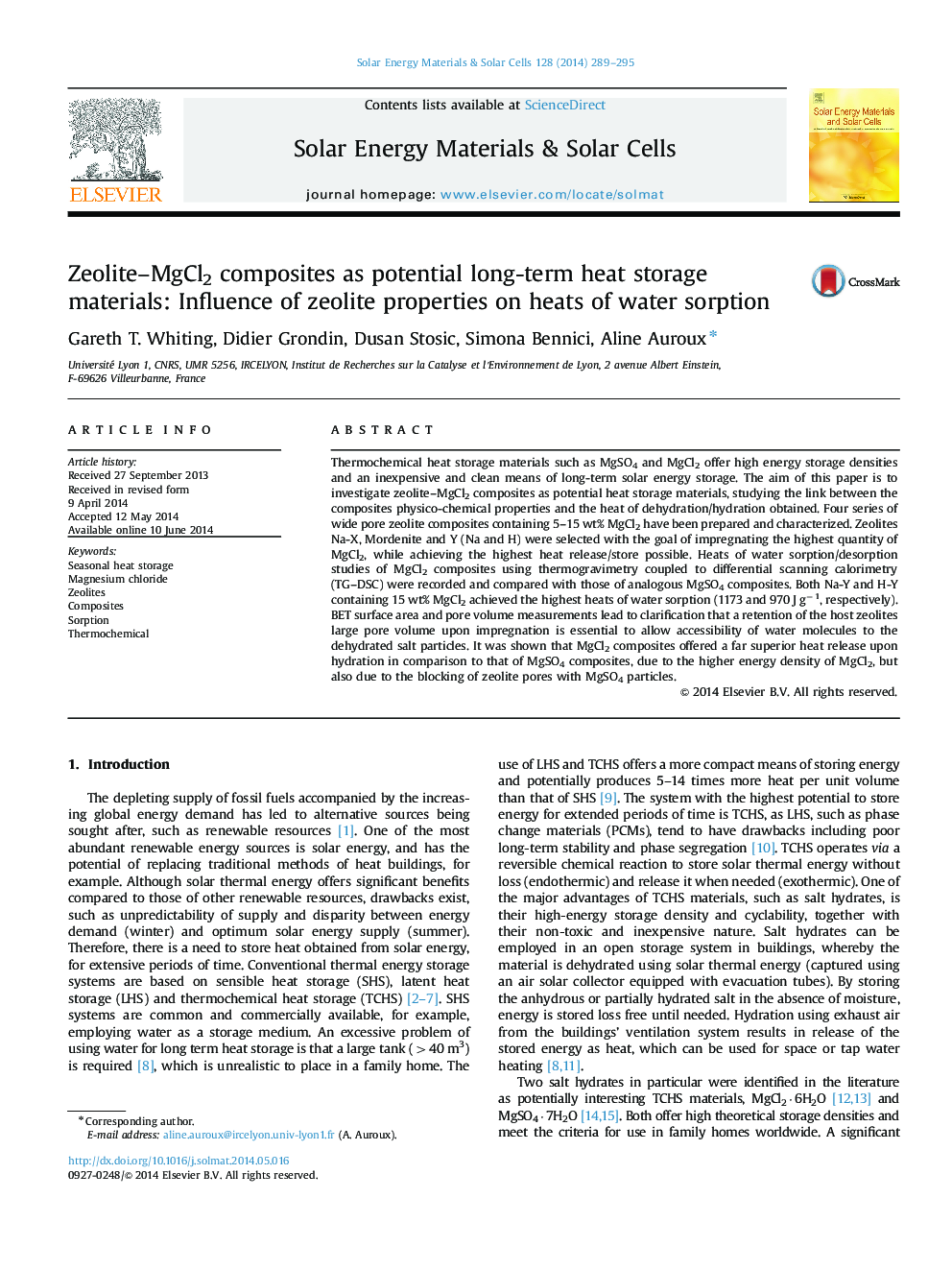| کد مقاله | کد نشریه | سال انتشار | مقاله انگلیسی | نسخه تمام متن |
|---|---|---|---|---|
| 77999 | 49312 | 2014 | 7 صفحه PDF | دانلود رایگان |

• Heats of water sorption/desorption were measured by TG–DSC.
• Zeolite–MgCl2 composites offer superior heat release than zeolite–MgSO4 composites.
• HY and NaY zeolites with 15 wt% MgCl2 achieve the highest heats of water sorption.
• The pore volume of the host zeolite plays a determining role.
Thermochemical heat storage materials such as MgSO4 and MgCl2 offer high energy storage densities and an inexpensive and clean means of long-term solar energy storage. The aim of this paper is to investigate zeolite–MgCl2 composites as potential heat storage materials, studying the link between the composites physico-chemical properties and the heat of dehydration/hydration obtained. Four series of wide pore zeolite composites containing 5–15 wt% MgCl2 have been prepared and characterized. Zeolites Na-X, Mordenite and Y (Na and H) were selected with the goal of impregnating the highest quantity of MgCl2, while achieving the highest heat release/store possible. Heats of water sorption/desorption studies of MgCl2 composites using thermogravimetry coupled to differential scanning calorimetry (TG–DSC) were recorded and compared with those of analogous MgSO4 composites. Both Na-Y and H-Y containing 15 wt% MgCl2 achieved the highest heats of water sorption (1173 and 970 J g−1, respectively). BET surface area and pore volume measurements lead to clarification that a retention of the host zeolites large pore volume upon impregnation is essential to allow accessibility of water molecules to the dehydrated salt particles. It was shown that MgCl2 composites offered a far superior heat release upon hydration in comparison to that of MgSO4 composites, due to the higher energy density of MgCl2, but also due to the blocking of zeolite pores with MgSO4 particles.
Figure optionsDownload as PowerPoint slide
Journal: Solar Energy Materials and Solar Cells - Volume 128, September 2014, Pages 289–295